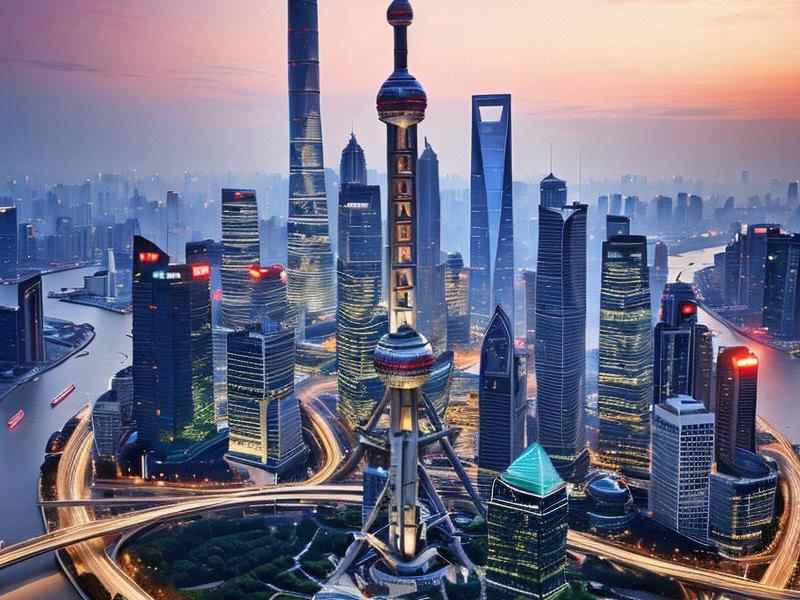This article delves into the multifaceted character of Shanghai, exploring its rapid urban development, rich cultural heritage, innovative spirit, and growing international influence. Shanghai, a city that has been a witness to China's transformation over the past century, continues to evolve as a global metropolis.

Shanghai, often referred to as the 'Pearl of the Orient,' is a city that seamlessly blends the old with the new. It is a place where the historic architecture of the Bund and the futuristic skyline of the Pudong New Area stand as a testament to the city's dynamic evolution. This urban juxtaposition is not just a visual spectacle but also a reflection of Shanghai's ability to adapt and thrive in an ever-changing world.
The Bund, with its array of colonial-era buildings, offers a glimpse into Shanghai's past as a major trading port in the early 20th century. These buildings, now housing a mix of financial institutions, luxury hotels, and restaurants, are a reminder of the city's historical significance. The Bund's promenade, lined with benches and illuminated at night, is a popular spot for both locals and tourists to enjoy the views of the Huangpu River and the modern skyscrapers of Pudong.
Pudong, on the other hand, is a symbol of Shanghai's ambition and innovation. The Lujiazui Financial District, home to some of the world's tallest buildings, including the iconic Oriental Pearl Tower and the Shanghai Tower, is a hub of economic activity. The area's rapid development over the past few decades has transformed it into a global financial center, attracting businesses and professionals from around the world.
Shanghai's cultural heritage is not confined to its architecture. The city is a melting pot of cultures, with influences from China's various regions as well as from abroad. This cultural diversity is reflected in the city's cuisine, art, and festivals. Shanghai cuisine, known for its sweet and savory flavors, is a favorite among food lovers. The city's art scene is thriving, with galleries and museums showcasing contemporary and traditional Chinese art. Festivals such as the Shanghai International Film Festival and the Shanghai Dragon Boat Festival add to the city's vibrant cultural calendar.
上海贵族宝贝自荐419
Innovation is at the heart of Shanghai's identity. The city has been at the forefront of China's technological advancements, particularly in areas such as finance, artificial intelligence, and green energy. The Zhangjiang Hi-Tech Park is a hub for high-tech enterprises, fostering innovation and entrepreneurship. Shanghai's commitment to sustainability is evident in its efforts to promote green buildings, public transportation, and environmental conservation.
Shanghai's international influence continues to grow. As a member of the World Expo Cities Network, the city has hosted major international events, including the 2010 World Expo, which attracted millions of visitors from around the globe. The Expo not only showcased China's development but also highlighted Shanghai's role as a global city. The city's international airport, Hongqiao International Airport, serves as a gateway for travelers, connecting Shanghai to destinations worldwide.
The city's leadership in international trade and finance is also noteworthy. Shanghai is home to the Shanghai Stock Exchange, one of the largest stock exchanges in the world. The city's free trade zones, such as the China (Shanghai) Pilot Free Trade Zone, are designed to promote trade and investment by providing a more business-friendly environment.
上海贵人论坛
Shanghai's educational institutions play a crucial role in the city's development. Universities such as Fudan University and Tongji University are renowned for their academic excellence and research contributions. These institutions attract students and scholars from around the world, contributing to the city's intellectual capital.
The city's infrastructure is a testament to its commitment to progress. The Shanghai Metro, one of the most extensive metro systems in the world, provides efficient and convenient transportation for millions of residents and visitors. The city's ports, including the Port of Shanghai, are among the busiest in the world, facilitating global trade.
Shanghai's residents enjoy a high quality of life, with access to world-class healthcare, education, and cultural amenities. The city's parks, such as Century Park and Zhongshan Park, offer green spaces for recreation and relaxation. The city's vibrant nightlife, with its bars, clubs, and live music venues, reflects the dynamic spirit of Shanghai.
上海品茶网
Despite its rapid development, Shanghai remains committed to preserving its cultural heritage. Efforts are being made to protect historic buildings and neighborhoods, ensuring that the city's past is not lost in its pursuit of modernity. The city's museums, such as the Shanghai Museum and the Power Station of Art, play a vital role in preserving and promoting the city's cultural heritage.
Shanghai's future looks promising, with continued investment in innovation, infrastructure, and sustainability. The city's leadership is focused on making Shanghai a more livable, sustainable, and globally connected city. Initiatives such as the Shanghai Smart City project aim to integrate technology into urban management, improving the quality of life for residents.
In conclusion, Shanghai is a city that embodies the spirit of China's transformation. Its ability to blend tradition with modernity, foster innovation, and maintain its cultural identity makes it a unique and dynamic global metropolis. As Shanghai continues to grow and evolve, it remains a beacon of progress and a symbol of China's aspirations on the world stage.